By Gaither Stewart
(SENIOR EDITOR)
Dateline: Rome—(This essay is being reposted at reader’s request)
Alexis de Tocqueville noted that Americans, as compared to English and French, tend to be abstract in speech. Though the French historian perhaps did not intend abstractness as insincerity, in my mind that abstractness, that is, the inauthentic language remarked a century and a half ago by a foreigner, has become the trademark of mainline journalism today.
Consider this question: Are the myth and lie surrounding American democracy not devastating? Devastating first of all to Americans themselves, devastating to the world at large. Why is that? And why doesn’t the press zero in on it? Was the lie, the falsification, always there? One concludes that it is precisely our still ballyhooed but in reality degenerated democracy that has made us obtuse and close-minded to truth and reality, ever more abstract, a people less and less willing to form independent concrete opinions.
The reality is that the mass of readers and TV listeners wait for corporate hirelings to tell them what they should believe. The insincere, unauthentic and mendacious journalistic elite is ever ready and willing to relay to the waiting people what they should think and how they should feel toward the world. Meanwhile, like all previous imperialists the elite opinion makers are ever more supercilious toward the others of the world, while, at the same time, the people, steeped in Americanism, have been convinced that America is truly carrying the torch of enlightenment to the world.
Why is this so? How did it happen that educated and superficially intelligent people bow down to the god of lie and accept and even believe in their elite’s version of reality? One pernicious rule laid down by our goody-goody liberal journalists, academics and educators concerns objectivity, impartiality and non-bias in word and thought.
Listen to both sides of the argument and decide for yourselves. Our way of life. America’s freedoms. See the facts! The facts! The reality is we get too many facts to even be able to attempt to understand the truth. From all sides we hear facts and more facts. But we don’t understand the world. We still don’t understand even ourselves. Oh, the facts! As if it were even 1% possible to know all the facts! And even if we did, what could we do with them?
Some time ago I published a provocative personal manifesto in favor of bias and partiality, both as journalist and member of the aware people of the world, to which principles I vowed to stick, come hell or high water.
“Journalists are taught to be objective and impartial. Separation of facts and opinion. I reject that. I will be as partial, biased and subjective as necessary to rebut the great lie. Most mainstream journalists do the same anyway, though they disguise their partiality in cute little euphemisms and false truths in order to placate governments and corporate bosses.
Objectivity does not interest me. Nor does impartiality. I have no desire to be unbiased. The great Gabriel García Márquez once claimed that he taught his journalism students to learn above all to be partial. To forget rules about impartiality and reliance on the facts laid down by the little men. Screw those incontrovertible facts. As if one could actually gather and list ALL the facts. The obsession with facts creates more small-minded people who believe an accumulation of facts amounts to knowledge.
 OBJECTIVITY?!
OBJECTIVITY?!
We ain’t got no objectivity!
We don’t need no objectivity!
We don’t have to show you any stinkin’ objectivity!
All our lives they hit us over the head with them. When someone says ‘the facts are’, it’s time to watch out. Which facts? Whose facts? Who assembled those facts so nicely? We are flooded with facts labeled information. Are facts really informative? As if facts about things that “they” report were worthwhile. As if their facts really informed us. As if their facts were the ones that count. Too many facts obscure the core truth. You read the growing, lengthening list of facts (though the list can never be complete), close the magazine, and what do you really know? I have read mountains of facts and sometimes believed I knew what was happening but I still knew nothing about the core of things. A little epistemology is called for.
The honest journalist-writer cannot allow himself to be unbiased and objective. And the truth is, he is not. Journalists are not academics. (And even they are not “objective”.) Besides, impartial to what? To lie? To hypocrisy? To swindle? What is there about which we should be impartial unless it’s those hateful, too often deceitful and besides always incomplete facts? As if we should be impartial to and have no opinion about the fictions-facts that justified the wars in Afghanistan and Iraq, the crushing of Serbia and the creation of U.S Fort Kosovo, the facts that led to the U.S. attack on tiny Grenada, facts become lies that lead to the ranting and raving—oh, those facts!—against Chávez in Venezuela, that support falsified lists of so-called rogue nations and terrorist movements such as Hamas and Hezbollah. Power uses “their” facts to draw around us the chalk circle outside of which we dare not tread. “Their facts are the real bias. The real partiality. There inside the circle of their facts we’re culturally and mentally cloned ignoramuses. By them. It tightens around us everyday. Power wants ever more power; the cloned man inside the circle, secure in his freedoms of facts and his impartiality, is easy to control. Viva bias!”

Fallaci fallacious: from icon of left journalism to turncoat. She probably glided over events, without an emotional or ideological understanding of what she supposedly witnessed.
The thing is, Fallaci, like good and honest journalists everywhere once both gathered and made news. That is, through her work she helped change society. That is why we need journalists and writers who are not self-serving climbers, parroting what authority wants the people to hear, terrified of extremes. Even if some of the latter avoid wandering too far from the truth, they do not tell the truth. Their non-truth thus becomes the great lie.
Therefore the need for writers and journalists who have opinions, who do not rely on facts alone, who dare look backwards at a world that did not begin today, who work on the edge, who dare go to the extremes, and through their reports change the reports. And help change society.
We need extremes. Desperately. Without extremes we sink up to our eyeballs in the merde of the politically correct, the opinion-less repeater of slogans and crappy careful, balanced language. Give both sides of the story, they say, as if every story did not have many many sides, not just two. Let the poor ignorant reader, the ignorant listener-watcher, let him decide, they teach us. Bullshit. The reality is that most listeners-readers decide nothing. They are targets. Then they simply parrot the good old trusty slogans.
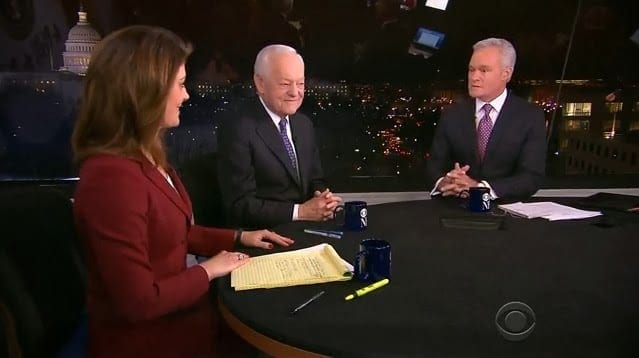
Norah O’Donnell, Bob Schieffer, and Scott Pelley: three self-impressed mediocrities in the CBS stable who actually believe themselves to be journalists. Insulated from reality, all multimillionaire celebrities, impregnated with the all-enveloping chauvinist brainwash, are they really unaware of their complicity?
In general we do not trust the word extreme. Especially not in writing. The word provokes fear and doubt. To some it means ‘non-control of material’ (that childish creative writing class expression which means that your materials are greater than you). To others it means politically incorrect. To the political establishment it implies the menacing resistance lurking around the corner.
In what sense then, extreme?
[dropcap]T[/dropcap]he Italian writer, Alberto Moravia, stressed that the writer is obliged to be extreme. No great writer, he said, is not extreme—he meant, sincere. Can one think that Baudelaire and Rimbaud, Dostoevsky and Tolstoy, Nietzsche and Ibsen, were not extreme, that is, sincere—in the deepest sense of true to themselves? The honest journalist risks. He is committed. The notion of objectivity in news is pure bunk. No journalist, no desk editor is truly objective. His publisher’s bias is always there between the lines. “In the classic example, a refugee from Nazi Germany who appears on television saying monstrous things are happening in his homeland must be followed by a Nazi spokesman saying Adolf Hitler is the greatest boon to humanity since pasteurized milk.”(Russell Baker, the former New York Times columnist).Committed writing is sometimes accused of being political writing (that is, bias based on uncontrolled material), yet moral conflicts inevitably have political backgrounds. Nearly every aspect of our lives today is related to politics, more so than ever before in The United States of America. Therefore an understanding of politics, of history and society, is fundamental for the journalistic writer in order to understand what he must oppose and what he can defend. Understanding politics however does not necessarily mean participation in politics. Understanding that America is a one-party state should point out the road toward forming another political party. That is the kind of extreme that strikes fear in their hearts. As writer Paul Bowles once noted in an interview with me in Tangier, “writers are not much good at politics anyway but they have to understand enough of it to write sensibly.” Chekhov too, over a century ago, advised writers to “engage in politics only enough to protect themselves from it. A bit of ideology and being up to date is most apropos.” But Chekhov was not Dostoevsky in whose work it is impossible to separate the ideological from the artistic. His characters are ideas, ideas trying to become ideals. They are not facts. That same feeling of ideas becoming ideals is to be found in great religious thinkers who do not write fiction. Ideas and ideals are the other side of the moon from the lists of facts of the our daily press.
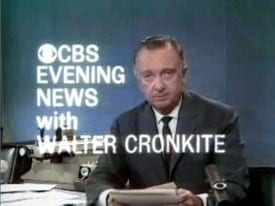
Cronkite is still revered as an icon of journalistic integrity. But, did he know that America was a fraudulent democracy? And if he did why did he keep quiet?
In my mind the enormity of universal socio-political problems today cancels out the objection that modern society has made the concept of literary-journalistic commitment (extreme and non-fact-based) obsolete. On the contrary. It depends on commitment to what? Most certainly not on a collection of facts to show that the world is getting richer and therefore human beings are better off than ever before. The object of commitment must be re-examined.
For example: Can the honest journalist-writer’s work be separated from the question of social responsibility? Questions of war and peace, market economy and poverty, environment and scientific advances, all underline the heightened need for socially committed literature that reach far beyond facts.
For example: Committed writers believe that human freedom is a social conquest and must be constantly reclaimed. Though admittedly there is a danger of forgetting literature in the name of commitment, unlike writers of compromise, committed writers overcome the threat through an ethical approach to their work.
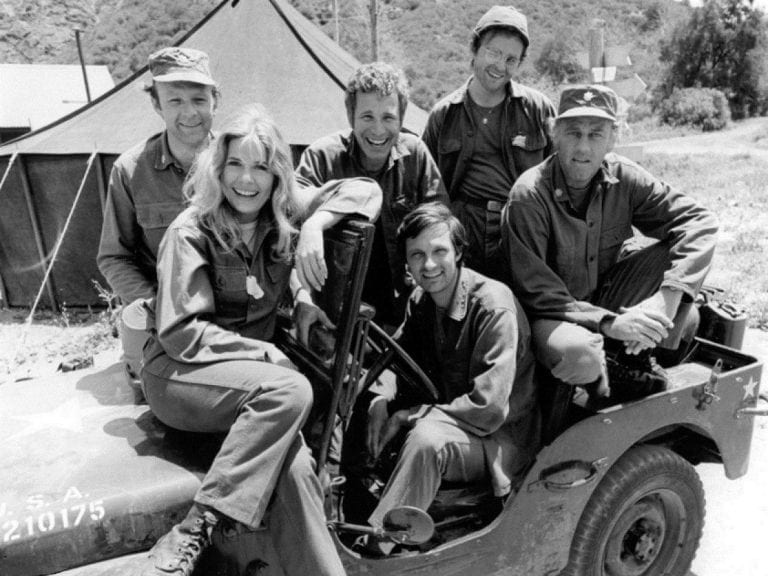
MASH: The Korean war as a big frat party. A pasteurized, trivialized, sophomoric picture of American power that Americans can live with. This dramedy is still regarded as exceptional television even though its central concept was a huge lie. How can Americans understand anything when reality is hunted down like a rabid dog?
As a rule American journalists and writers and educators and academics come from the middle classes. Some of them comprise also the artistically creative part of the nation. They are marked by considerable diversity. They claim to prize non-conformity, innovation and independence.
It is no secret that the American upper middle class is shrinking. The class the rest of the world knows best, the most representative class of America, is threatened with extinction. It is being eliminated by a subtle coup d’état, executed by elite corporate America against America itself. And from generation to generation it is becoming more elite.
Here’s a worthwhile projection to consider: it has been calculated that at today’s pace another generation will suffice to eliminate the upper middle class. Education is a chief indicator of middle class status, yet, the prohibitive costs of higher education today guarantee the manifest elitism in America and the continuity of power in the hands of the smaller and smaller and best educated and to a great extent capitalist class, who constitute also the political class. There is today little difference and disparity between Wall Street and the political establishment.
Education is fundamental to prepare members of the upper class for creative and leadership roles. It is that middle class-bourgeoisie that has written the bulk of modern social and political history. The history most of us know best is their view of history.
Now that mendacious history must be re-written. Everything must be reviewed. Everything must be revised. Old facts erased. All of it—World Wars I and II, the “forgotten” Korean War and where it all started, the Cold War, the USSR, Stalin, Iran, Iraq. Everything. Especially 9/11. Something changed dramatically in America since the time of Ronald Reagan who set the scene for what has happened under Obama and GW Bush in power. What has changed? That mystery must be clarified. Old facts must be obliterated.

Reagan: At heart a mean-spirited conservative, this superficially amiable clown set the clock back several generations.
Western society is still divided into two hostile camps: the elite classes which run things, and the wage earners which resist exploitation by the ruling class. Misinformation-disinformation maintains and broadens that social divide.
Though the ruling elite class is small and the wage earners an overwhelming majority, why don’t the exploited classes rebel and revolt, again and again? Why not? The reason is clear: the exploited classes are not only victims. They are also accomplices. Half victim, half accomplice. The historical paradox. The ruling class counts on this dichotomy to maintain the system. Divide and rule. Meritocracy. Rewards for obedience. Two cars and bigger houses for staying in line. A system based on money, economic domination, control of information, religion and fear.
Today’s Americans are a misinformed, fearful, disillusioned and sacrificed people. Only the myth-fiction of America remains. The words liberty, equality and brotherhood have remained empty slogans.
At some time in life we choose sides. But to decide we need to be truly informed. The freedom of assembly and freedom of speech for example are freedoms to fight for. The expiring middle class in the USA today, infected by its false consciousness, is dependent on a corrupt system, dominated and rocked to sleep by the blandishments and diminishing rewards given them by the minute upper class and the misinformation provided by its press.
Therefore, in order to change things, the urgent need for a truly informed and educated people, liberated from the binds of the tiny establishment. Looking back at the Russian experience, one realizes the immensity of the word “revolution”. The revolutionary vanguard of the educated and politically aware class faces enormous challenges such as ridding the people of their illusions of what their society really is. The educated, committed class must get across its message to the people in order to create a mass awakening and a new consciousness. In the USA and Europe, the truth and phony nature of elections would be a worthwhile subject for the mainline press. But today that is impossible since that press is the establishment press, uninterested in the true truth or factual facts, but only in defending the interests of the elite corporate capitalist ownership of the press itself.
Note to Commenters
Due to severe hacking attacks in the recent past that brought our site down for up to 11 days with considerable loss of circulation, we exercise extreme caution in the comments we publish, as the comment box has been one of the main arteries to inject malicious code. Because of that comments may not appear immediately, but rest assured that if you are a legitimate commenter your opinion will be published within 24 hours. If your comment fails to appear, and you wish to reach us directly, send us a mail at: editor@greanvillepost.com
We apologize for this inconvenience.
![]() Nauseated by the
Nauseated by the
vile corporate media?
Had enough of their lies, escapism,
omissions and relentless manipulation?
Send a donation to
The Greanville Post–or
But be sure to support YOUR media.
If you don’t, who will?



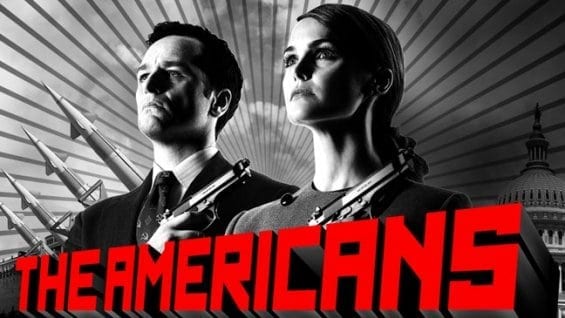
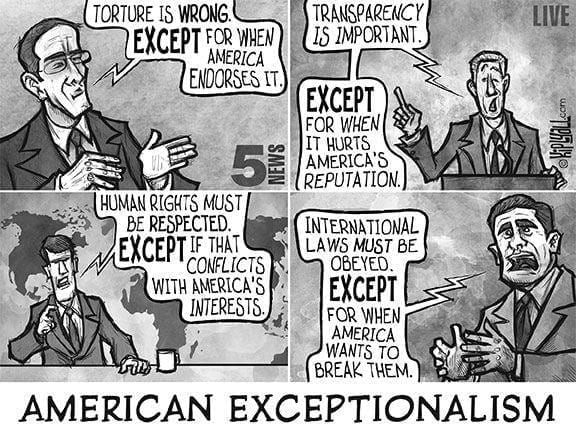

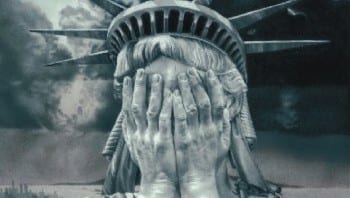
Eric Schechter 18 October 23:53 Good article. But I would further discuss one point. Gaither says that the reason the exploited do not rebel is because they are accomplices, but he does not investigate why. I think the best explanation of why was given in the film “The Matrix.” The exploited and nonrebellious in Gaither’s article are the sleepers inside the Matrix. They have been fooled by a mythology, and most of them are not ready to be awakened from that mythology, and then will defend that mythology with their lives. And what is that mythology? Different examples of it… Read more »
Good awakening to the fallacy of objectivity and impartiality in news reports, more glaring now thanks to alternative sources and narratives. Mass media’s role is not to inform but to entertain, brainwash and serve on a platter a reality constructed and shaped by the power elite, thereby masking the true state of affairs. Most people lack the time, will or capacity to understand events and are ready to surrender their rationality to the ready-made, fast-given interpretation regurgitated by “experts”, politicos and media whores. I stopped reading newspapers, watching TV or listening to radio in 2003 and I believe to have… Read more »
Bravo ! The best explanation is as always the cynical lines reflecting his impression of the US empire by the Marxist writer Bert Brecht (in Aufstieg und Fall des lands Mahagonny):
“Oh show us the way to the next little dollar!
Oh don’t ask why,
oh don’t ask why!
For we must find the next little dollar
For if we don’t find the next little dollar
I tell you we must die!
I appreciate Eric’s question about where we get our political beliefs, a question I have been asking myself.. And social beliefs too, I would add. Why have I come to consider myself Communist/Socialist? Me, of all people. No Socialists in my family. Few “radical” friends in my youth. So how and why did I arrive here where I am? Was it a choice among several alternatives? Not that I am aware of. So why?
I am working on that question, Gaither. What I come up with, tentatively, are flashes of memories–two or three–from childhood, say, up to age five. They are memories that pit two responses one against the other: kindness versus unkindness (one)–and, two, rationality versus irrationality. I see myself, small, siding against unkindness, but not daring to act, and against irrationality, though feeling impotent to expose it. The impotence and the silence–those must have haunted me. Surely I did not retain these memories so vividly for nothing. Surely, they had to do with something in my domestic education that made me question… Read more »
A terrific read, indeed, from Gaither. As a really veteran journalist, he has clearly processed through experience–and questioned–the premises of the profession as it has been taught and practiced particularly in the US–and as it has been professionalized in schools of journalism. I find it not coincidental that “yellow journalism” surfaced in the first flush of overseas American imperialism in the 1890s. and that “objectivity” became its sanitized new name in the 1980s, coinciding with the redefining of the word “imperialism” (never allowed to be current in US anyway) as “globalization.” It’s not that objectivity is impossible; it’s that, though… Read more »
I agree very strongly with Luciana’s point about the SIGNIFICANCE of facts, and I want to continue a little further on that point. Television news often presents stories as “facts” without analysis. Even DemocracyNow sometimes does this. They do have some analysis built into the vocabulary that they use — e.g., if they report about some fighting that was done by “terrorists,” rather than “freedom fighters,” this slants their facts to one interpretation rather than another. But even presenting facts without interpretation has a couple of implied interpretations. One is the interpretation that society’s dominant worldview is correct, and there… Read more »
Wonderful, Eric. Though I’m an ignoramus in science and maths (and I greatly admire them), I instinctively know that there is something inherently abusive about “logical arguments,” that the essence as opposed to the aesthetic of nature (including human) cannot be pried open by maths (pace, Descartes), and that taking a position is ultimately philosophically (or logically) indefensible. But, because it is logically indefensible–LOGICALLY–this does not mean it is ethically indefensible. Because it is “illogical,” we don’t take the leap. Liberals are quite afraid of taking the leap; the skepticism about ultimate truth paralyzes them. However, those are all “ideas”–in… Read more »
Just blown away by this article and the commenters’ elaboration. In a properly run society YOU should be the editors running The New York Times, CBS, and the rest of that magnificent edifice of mass comm totally wasted on propagandizing evil…and banality. It’s a sad sad thing that the bulk of American readers will never see this discussion. So much trouble and pain might be nipped in the bud if they did. This, among many passages in this essay and discussion resonate with me: “The fetish of objectivity, moreover and paradoxically, kills objectivity because there is no objectivity in facts… Read more »
Man, you hit it on the nail! All of it. I sensed the truth of what you say here but could never put it in words not even remotely like that. So thank you.
And I never liked MASH either. Irritated my sense of–what?–“decency”? To watch these Americans prancing around, making jokes, and playing heroes in a nation we attacked and caused enormous destruction is obscene. So fuck MASH and the propaganda it rode in! And the biggest, unkindest cut is that for many years liberals have held it as a PROGRESSIVE example of antiwar programming.
T.H. Willard
Albuquerque
Eric’s coments in this discussion reflect the thoughts and words of most of my fictional protagonists: the wonder at who they are or have become and why they think and act as they do. Behind Eric’s written words and between the lines I see my fictional A or B or C (that is, me!) plagued by the same doubts and asking the same identical questions, which are perhaps the doubts and questions of all curious, politically and socially emancipated people of the world. And now Eric has added “separateness”, another fundamental side of my characters, and thus my own questions… Read more »
So many comments and interestingly enough the question arose of why one became a socialist, communist or whatever. For myself I can only think that living as a half-abandoned child during World War II has shaped my views about oppression and the violence that people do to each other. And aside from that the influence from a lawyer mother who emerged from a hospital after the war and who was an anarchist and of course an atheist. Any kind of blind zealotry became anathema for me after living in Iran and studying in the Lebanon at an American University where… Read more »
Reading again this wonderful article made me laugh, because it undresses so many preconceptions and misconceptions. It should be published everywhere and spread to every US high school curriculum. Indeed no-one writes without a personal hypothesis pre-formed about what is expressed and meant to change the reader’s mind. That goes for literature, philosophy and even scientific treatises, all of which bombard us daily (we can exclude television which is deliberately geared to obfuscate and distract the viewer, not to inculcate any thoughtful propositions). Mass engineering was studied in the US in the nineteen sixties as a means to control a… Read more »